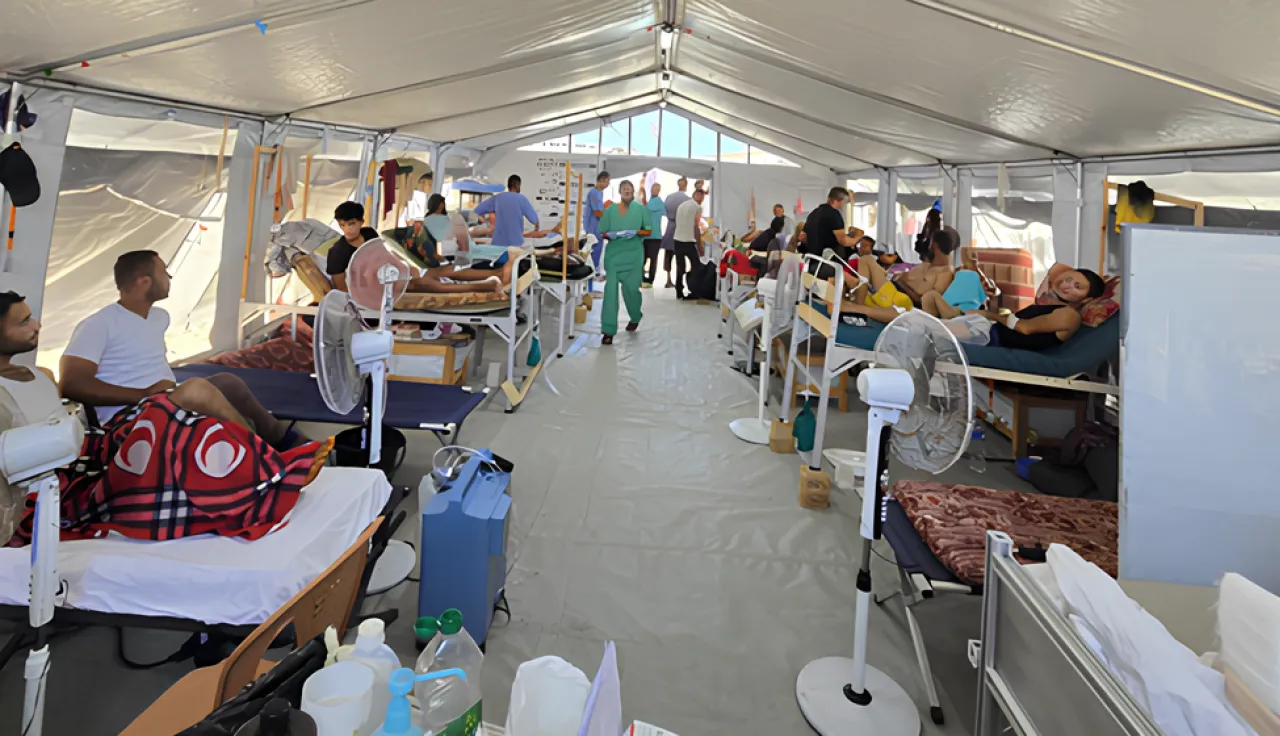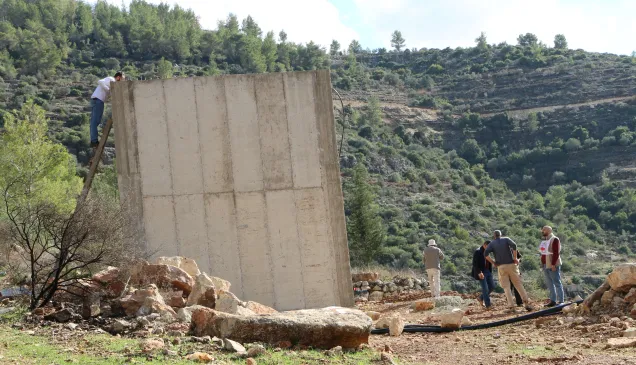Update from the Red Cross Field Hospital, Rafah: 18-Month Operational Summary

Over the past 18 months, the Red Cross Field Hospital (RFH) in Rafah has delivered vital medical care under challenging conditions and a swiftly evolving humanitarian context.
Key statistics and services
- 130,978 consultations, marking a 47 % increase month‑on‑month
- 7,373 surgical procedures performed - up 93 %, including general surgery (64 %), debridement (25 %), and orthopaedics (5 %)
- 566 deliveries handled (+35 %)
- 3,299 hospital admissions (+54 %)
- 3,784 blood transfusions astonishingly increased by 1,510 %
- 10,001 physiotherapy sessions delivered (+52 %)
Mass casualty incidents (MCIs)
Since new food distribution sites opened on 27 May 2025 - approximately 2 km from the RFH - the hospital has seen a surge in mass casualty incidents. Between 7 June and 31 July, there were 13 MCIs, with 11 directly linked to the food distribution centres. During this period, the RFH admitted 12,574 patients. The Palestine Red Crescent Society (PRCS) continues to transfer critical cases and mortalities to Nasser Medical Complex (NMC).
Demographics
- 35 % of patients are children under 18 (27 % are under 14)
- 43 % of patients are female
Psychological support
The RFH has provided 2,073 individual psychological support sessions and 187 group sessions—serving both patients and caregivers—underscoring its holistic approach to care.
Operational challenges and innovative responses
- The morning surge in MCIs disrupts inventory and pharmacy restocks, causing shortages of medication and essential supplies. ICRC logistics teams in Geneva and Amman are working to alleviate the backlog.
- Severe food insecurity, rising prices, and lack of local availability have led to delayed patient recovery and stress on staff—some of whom fainted on duty due to hunger. In response, a community baking facility, supported by the ICRC, now delivers 600 loaves of bread daily to the hospital.
- Hostilities near food distribution points pose serious security risks, including stray bullets. On 4 July 2025, a staff member was injured by a stray bullet but thankfully stabilized. Despite a humanitarian pause declared on 27 July, risks remain heightened.
Water, community engagement and support
To maintain hygienic, safe care, RFH relies on clean potable water. In just 11 months, onsite reverse osmosis systems produced 4,100 cubic metres of water - critical amid Gaza’s shattered infrastructure.
ICRC staff regularly convene with local community leaders to build trust, address misinformation, promote safe practices (e.g., for blood donation), and discuss pressing concerns like dignity in aid, access to healthcare, and water security.



